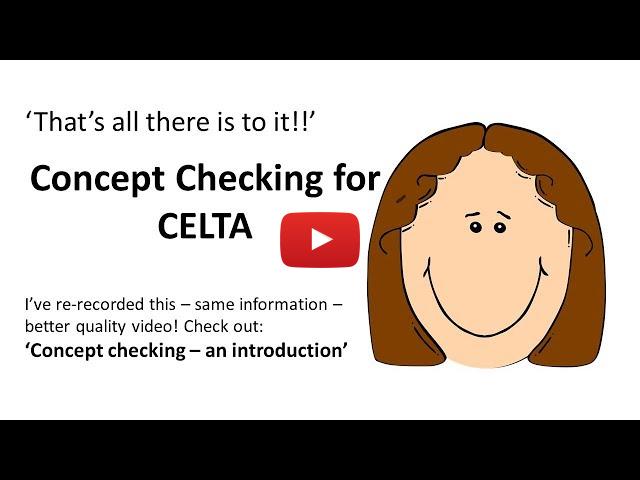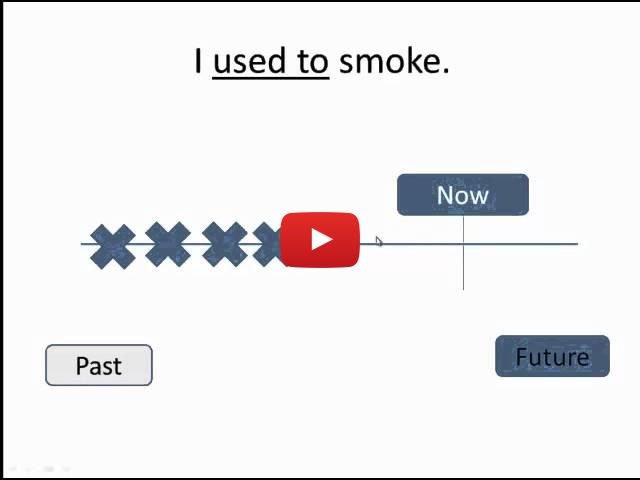Greetings to everyone In one of our previous newsletters, we have already written about the ways teachers can check if the students have understood the instructions. But how do we know the students understand difficult aspects of the target lexis or grammar in terms of meaning or function? Today we are going to talk about concept checking questions designed to highlight the essence of the meaning of the target language before any intensive practice of form is carried out.   
CCQs: do English teachers ask the right questions? WHAT ARE CCQs? “A concept checking question (CCQ) is a question designed to check or to guide learner’s understanding of the meaning of a new word or grammar item. Asking CCQs allows teachers to monitor their students understanding without having to resort to translation or to that unreliable question Do you understand? CCQs are designed to isolate the core meanings of the item”, according to The New A-Z of ELT by Scott Thornbury (Macmillan, 2017). Usually, we introduce the words first in context and then clarify what they mean and how they are used. Explaining or defining something to a person who shares the same mother tongue as you can often be tricky. Imagine doing it to a speaker of a different language. Let’s imagine you defined the word ‘sand’ to your student. Probably, you would do this if you were not able to draw some recognizable sand on the board or provide a picture. You may also have talked about the sea, desert, nature etc. The CCQs for this vocabulary item might be: What colour is it? (Expected answer: yellow; white) Where can you find it? (by the sea; in the desert; on the beach etc.) If the students answer the questions correctly, we can assume that they are not completely confused by our definition. On the majority of the TEFL courses such as CELTA, the trainers make sure that the trainee teachers include CCQs in their lesson. Some trainers even go so far as penalize trainees for NOT writing them down in their lesson plans! GENERAL RULES FOR GOOD CCQS You may wonder what makes a good CCQ and when to ask them. We have collected the ideas from different teacher trainers and here are some of the recommendations on how to make and use CCQs effectively when you teach English: 1. Use simple language. 2. Don’t use the target language in your CCQs. 3. Ask both yes/no questions, either/or questions, and simple ‘Wh’ questions, shared experience or life experience questions to check the various aspects of the target language. These (closed) questions have to be easy to answer. 4. One CCQ will not be enough, aim to have 3 or 4. 5. Use pictures, realia, miming, synonyms, antonyms, the whiteboard, and time and tense in CCQs. 6. Direct CCQs to specific students, not always to the whole class, the same students, or strong students; cover as many students as possible. 7. Questions which aim to make the students say the target language are not CCQs (they are eliciting questions) CCQs FOR TEACHING VOCABULARY It’s quite easy to make CCQs when you teach new vocabulary. They are often used in PPP or TTT lesson frameworks. You will need to prepare them ahead. It is also helpful to use a dictionary while prepping CCQs. First of all, you have to identify the meaning of the word and then turn that meaning into a closed question. Let’s look at the following example: They decided to go for a walk. If you look in a dictionary, you will find the following definition of ‘decide’: decide (verb) to choose something, especially after thinking carefully about several possibilities In other words, these are three elements of the word ‘decide’: - They had a few possibilities.
- They were thinking carefully.
- They chose.
The next step is to make these into questions: - Did they have a few possibilities? (yes)
- Were they thinking carefully? (yes)
- Did they choose what to do? (yes)
- What did they choose? (to go for a walk)
You will see that the more practice you have, the easier they get! If you want to know, what difficulties might be there when you make your own CCQs, watch the video below: 
CCQs FOR TEACHING GRAMMAR CCQs about grammar concepts can be difficult to formulate in a way that is clear to learners. But they can become an effective tool in enabling the students to understand a new item. Remember, you are checking the MEANING of the structure! Also make sure you are SPECIFIC about it. Let’s imagine you are teaching your students a lesson on the common way to express the future through present continuous tense. I am leaving on Friday night and I am coming back on Saturday evening. What is the meaning here? Here are the three key areas of meaning we should cover: - I am talking about future.
- I am not leaving now or coming back now.
- I decided to leave on Friday night and come back on Saturday evening. (probably I have tickets/arranged to go with someone etc.)
Let us make them into questions: - Are you leaving in the future or now? (future)
- Have you decided yet? (yes)
- Have you got tickets? (yes/no, but I am going with someone else etc.)
For more information and difficulties that might arise when asking CCQs for teaching grammar, watch the following video: 
The value of concept questions should not be underestimated, but many teachers either forget to use them or find them difficult to construct. We do hope that our today’s tips will help you become more confident in asking CCQs and your students will not have any issues with understanding English and enjoy every minute of your lessons! For further reading, please visit: Checking Understanding Concept Checking Questions (CCQs) Teaching techniques: Concept questions Checking Understanding – Part 2 – Concept Checking Questions (CCQs) |